THE
LONG
AND
SHORT
OF
IT
 FROM APHORISM TO NOVEL
FROM APHORISM TO NOVEL 
GARY SAUL MORSON
STANFORD UNIVERSITY PRESS  STANFORD, CALIFORNIA
STANFORD, CALIFORNIA
Stanford University Press
Stanford, California
2012 by the Board of Trustees of the Leland Stanford Junior University. All rights reserved.
No part of this book may be reproduced or transmitted in any form or by any means, electronic or mechanical, including photocopying and recording, or in any information storage or retrieval system without the prior written permission of Stanford University Press.
Printed in the United States of America on acid-free, archival-quality paper
Library of Congress Cataloging-in-Publication Data
Morson, Gary Saul, 1948 author.
The long and short of it : from aphorism to novel / Gary Saul Morson.
pages cm
Includes bibliographical references and index.
ISBN 978-0-8047-8051-3 (cloth : alk. paper) ISBN 978-0-8047-8169-5 (pbk. : alk. paper) ISBN 978-0-8047-8189-3 (e-book)
1. Aphorisms and apothegmsHistory and criticism. 2. Wit and humorHistory and criticism. 3. Epigram. 4. Literary form. I. Title.
PN6269.A2M67 2012
'.dc
2011039934
Typeset by Bruce Lundquist in / Minion

FOR KATIE

They were arguing about something complex and important, and neither one of them could convince the other. They did not agree about anything, and that made their dispute all the more engaging and endless.
Mikhail Bulgakov, The Master and Margarita
C ONTENTS
AC KNOWLEDGMENTS
Some thirty years ago, my former teacher, the late Martin Price, commenting on my first book, remarked that my style tended to the aphoristic and suggested that I might someday examine the form systematically. Around that time, I attended classes and lectures given by the University of Pennsylvanias Department of Folklore and Folklife and learned a great deal from Dan Ben-Amos, Barbara Kirshenblatt-Gimblett, and the late Dell Hymes. Along with two other scholars associated with that department, Phyllis Gorfain and Joanne Mulcahy, they taught me to appreciate proverbs, jokes, and folktales as much more interesting and complex than we usually suppose. The work of the late Thomas M. Greene helped me to understand the complexities of quotations, aphorisms, and their place in Renaissance literature. Caryl Emerson convinced me, but not well enough, that, as aphorisms must not be too long, so they must not be too plentiful.
When I finally began writing this book in the mid- 1990 s, I discussed its key ideas with Robert Alter, Jonathan Brent, and Joseph Epstein. They remain the implicit addressees of many passages below. In my understanding of the great aphoristic philosophers, I benefited greatly from discussions and correspondence with Bracht Branham, Walter Jost, Kenneth Seeskin, Meredith Williams, and Michael Williams. Three times I co-taught a course with the late Stephen Toulmin, and my understanding of Wittgenstein developed under his guidance. Stephens influence on my thinking will be apparent to anyone who knows our work. I changed no less, but in different ways, from the profound and unique conversation of the late Aron Katsenelinboigen and from the wise and warm words of Kenneth Mischel.
More recently, I had the pleasure of co-teaching a course using some ideas from this book with Morton Schapiro, who, in his role as president of Northwestern University, has fostered the spirit and atmosphere in which great research and teaching thrive. His responses to my ideas inspired some changes of which he is still unaware.
Perhaps Bud Bynack, Michael Denner, Dilip Gaonkar, Robert Hariman, Robert Louis Jackson, Richard Kieckhefer, Lawrence Lipking, Daniel Lowenstein, Kathe Marshall, Susan McReynolds-Oddo, Barbara Newman, Clara Claiborne Park, Janice Pavel, Helen Tartar, and Herbert Tucker are also not fully aware of all they contributed.
Even more than my colleagues, my students revive, at painful moments of doubt, my sense of dedication and purpose. I know I will regret omitting some names which will come to mind only after this book has gone to press, but, notwithstanding that risk, let me record my gratitude to Lindsay Sargent Berg, Wendy Cheng, Nava Cohen, Andrew Gruen, Robert Gurley, Omar Hassan, John Mafi, Lori Singer Meyer, Matthew Morrison, Karthik Sivashanker, Trish Suchy, Andrew Thompson, Ryan Vogt, Christina Walker, Cindy Wang, and Annabel We.
Robert Belknap and the late Wayne Booth not only taught me a good deal about aphorisms but also, and much more important, offered unselfish help and served as scholarly role models. When difficulties with this manuscript drove me to near despair, I knew I could count on Elizabeth Cheresh Allen, Henry Carrigan, Thomas Marullo, Robin Feuer Miller, William Mills Todd, and Andrew Wachtel. I cannot express enough gratitude for all they did and wanted to do.
Northwestern University offered a congenial environment in which to think and work. As I wrote this book, I was always mindful of the support of Dan Linzer, the late Lawrence Dumas, and Marilyn McCoy. Nava Cohen, Catherine Grimstead, and Mark Ratner helped in ways that mattered more than they know.
In his reading for Stanford University Press, and in subsequent correspondence, Frederick Crews showed me places where changes were needed. Thomas Pavel, in his reading and subsequent comments, suggested especially insightful ways to make those changes. The result, at least to my mind, is a better book. Emily-Jane Cohens confidence in this project ensured its completion and appearance.
Steven Blumenkranzs commentaries and advice have been a guide for some six decades. No matter how often I try, I am always at a loss to express all I owe, in so many ways, to Frances Padorr Brent and Jonathan Brent.
Not a day goes by when I do not think of some conversation with Michael Andr Bernstein, who died while this book was in press. When I would forget important things about myself, he would remember. I know no one wiser. And I am always guided by his refrain that what really matters is to keep the conversation going. As I worked on this manuscript over the past few years, I also learned to admire, and admire still more, all that Dalya Sachs-Bernstein does every day.
It is hard to imagine saying what I have learned from Shirley Morson. Even ninety-three million years would be insufficient to express my care for Alexander Morson and Emily Morson.
Could either brevity or length suffice to express what I owe to my wife, Katie Porter?
A BB R EVIATIONS
| 1001D | The 1001 Dumbest Things Ever Said, ed. Steven D. Price (Guilford, CT: Lyons Press, 2004 ). |
| 776S | Ross and Kathryn Petras, The Stupidest Things Ever Said (New York: Broadway, 1993 ). |
| ABPE | The Anchor Bible: Proverbs, Ecclesiastes, ed. and trans. R. B. Y. Scott (Garden City, NY: Doubleday, 1981 ). |
| AE | The Adages of Erasmus, ed. William Barker (Toronto: University of Toronto Press, 2001 ). The volume contains one introduction by the editor (ixxlvii) and one by Erasmus (), which first appeared in the 1508 edition. |



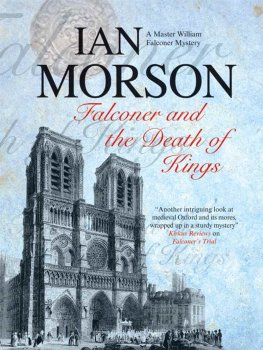
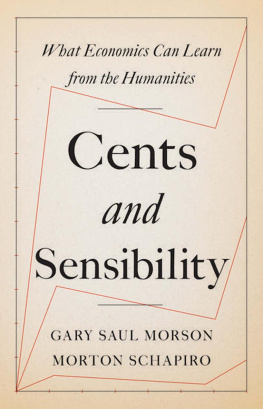
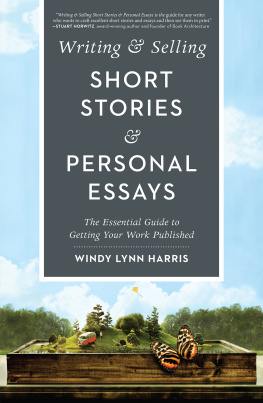
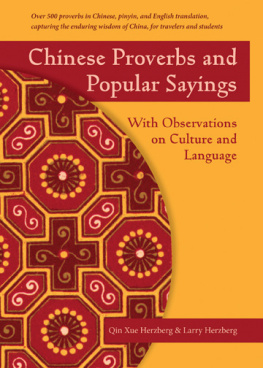
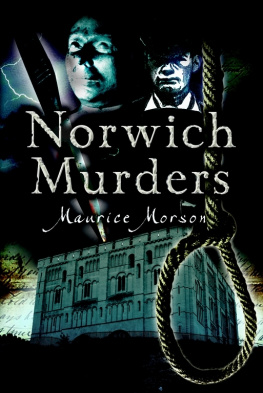
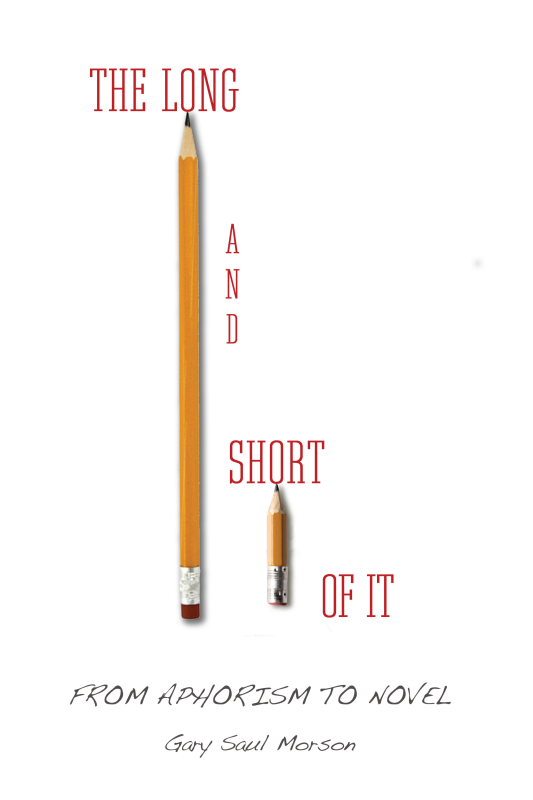
 FROM APHORISM TO NOVEL
FROM APHORISM TO NOVEL